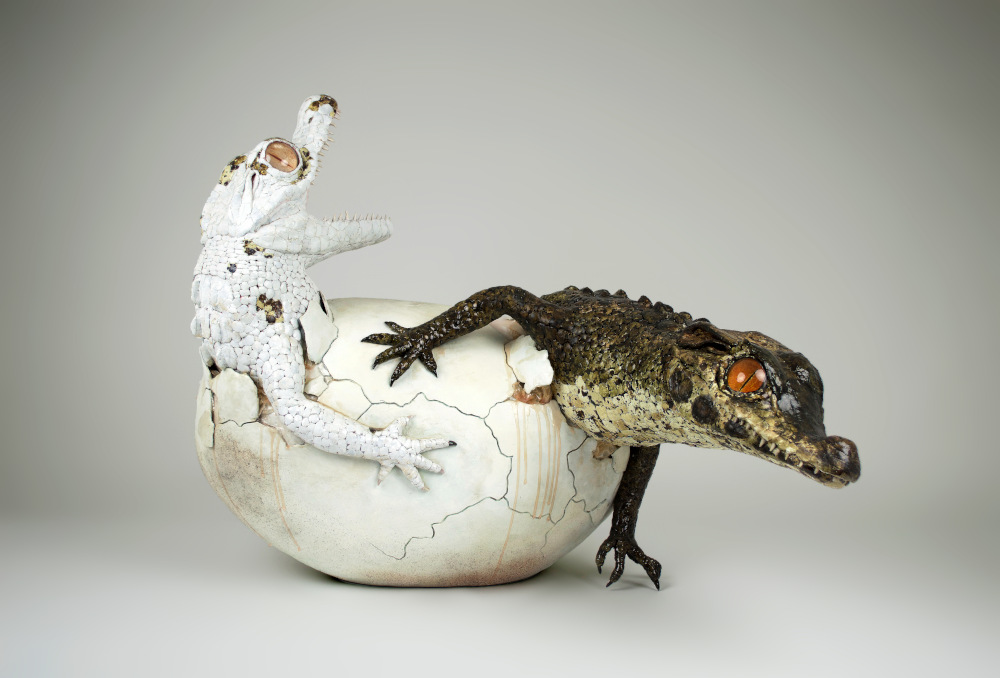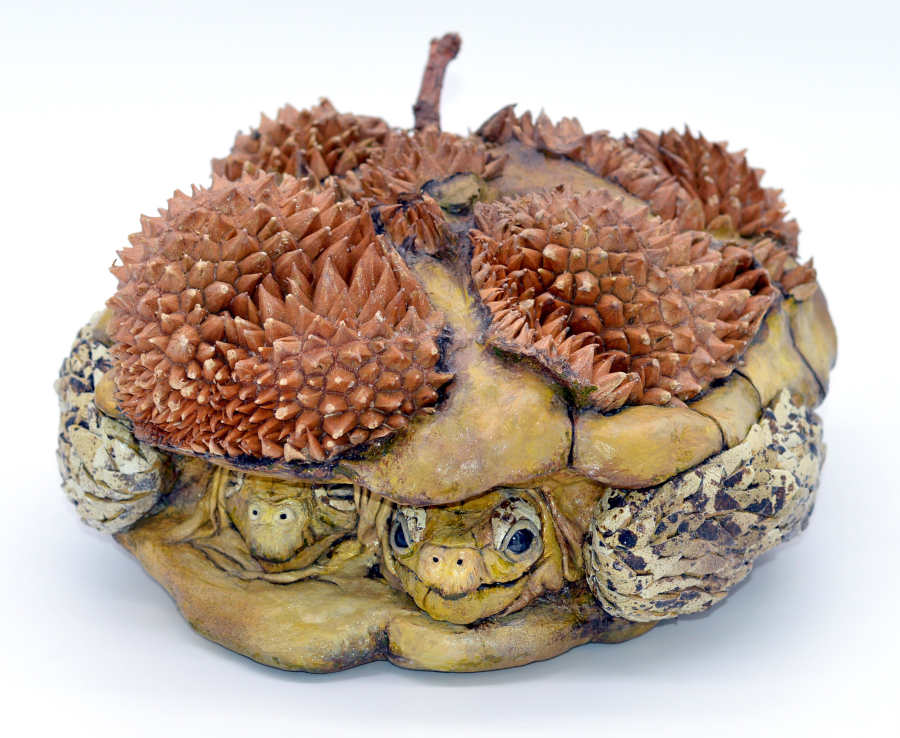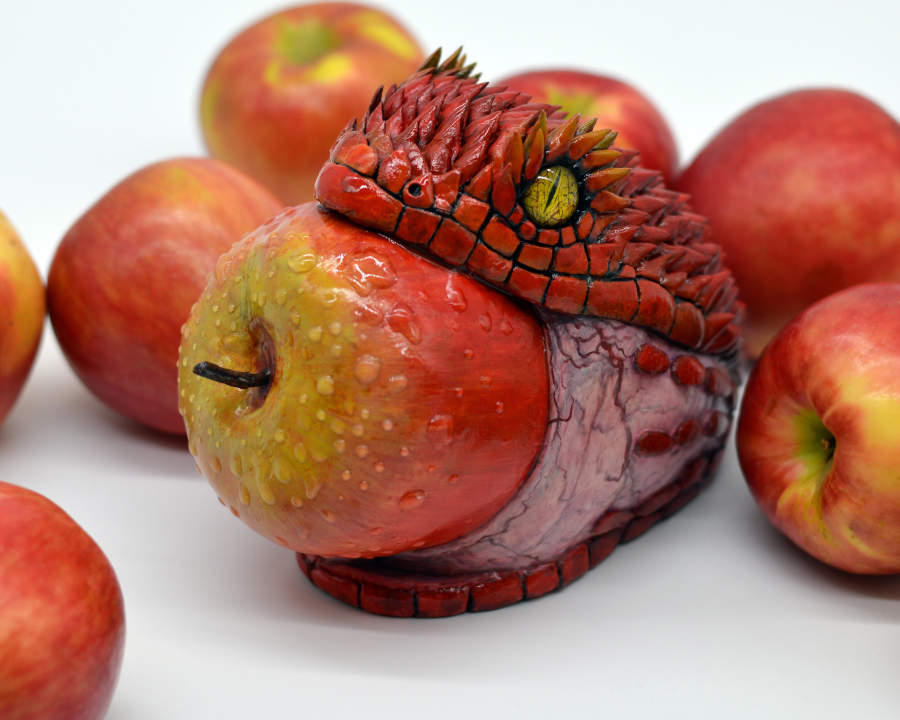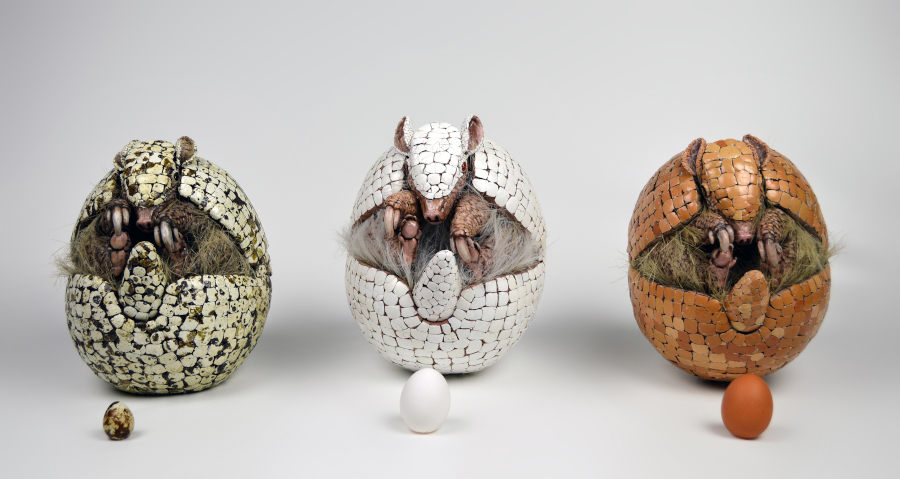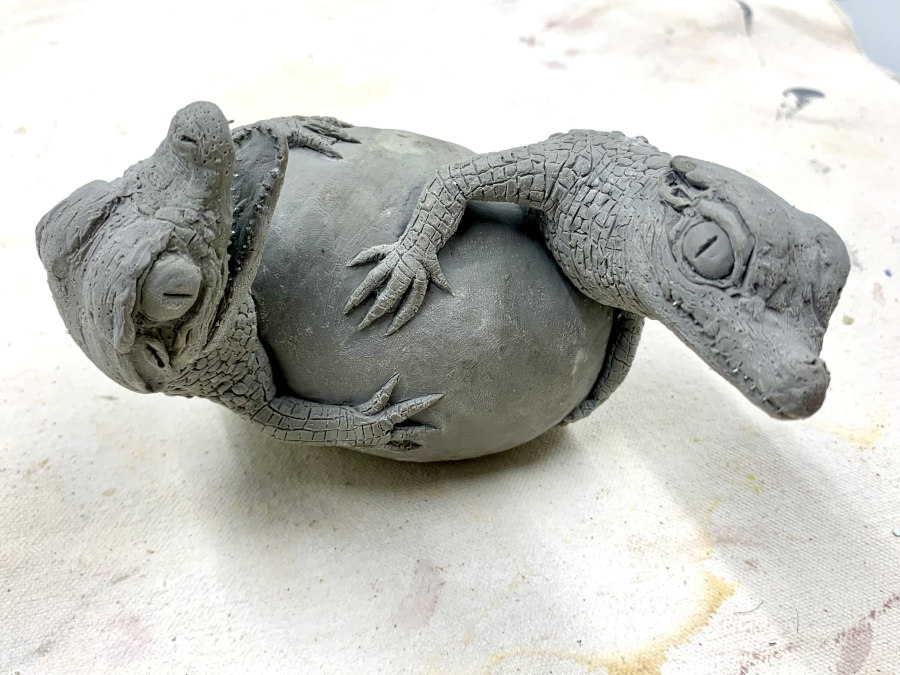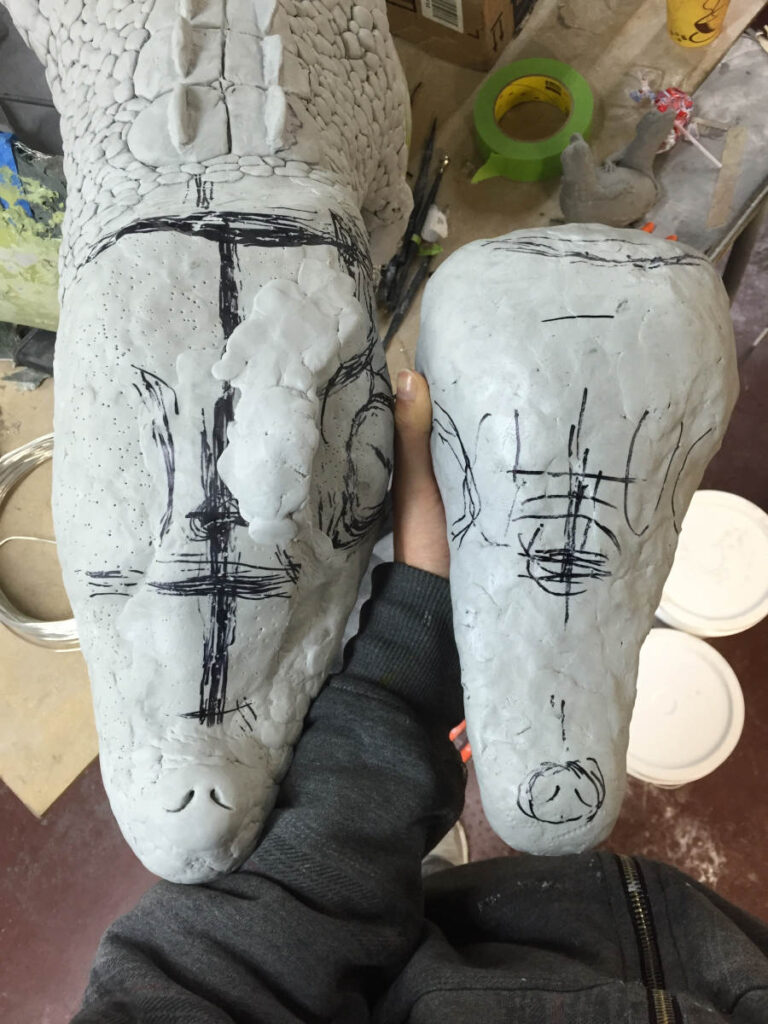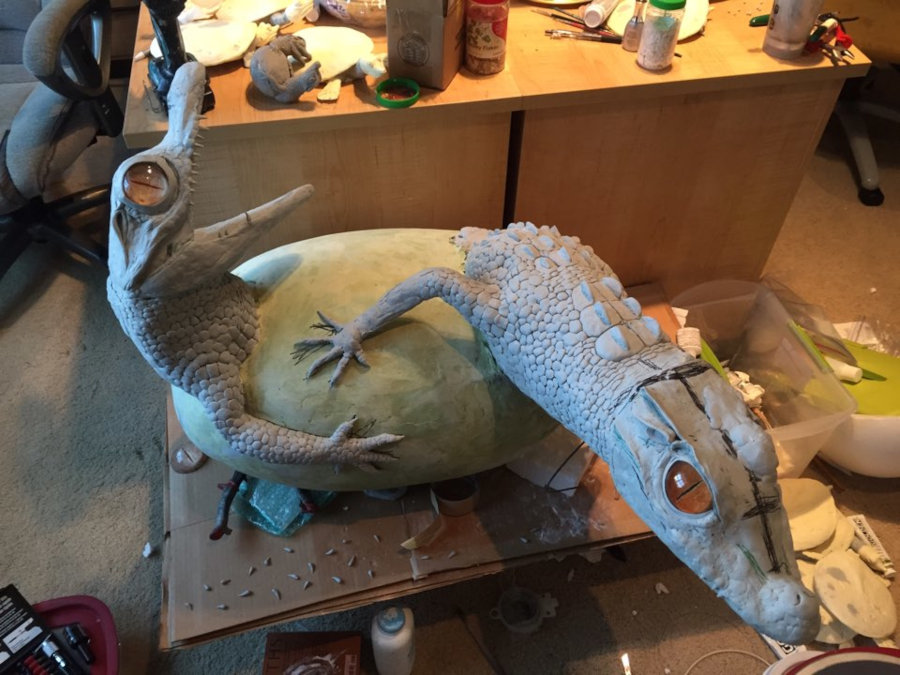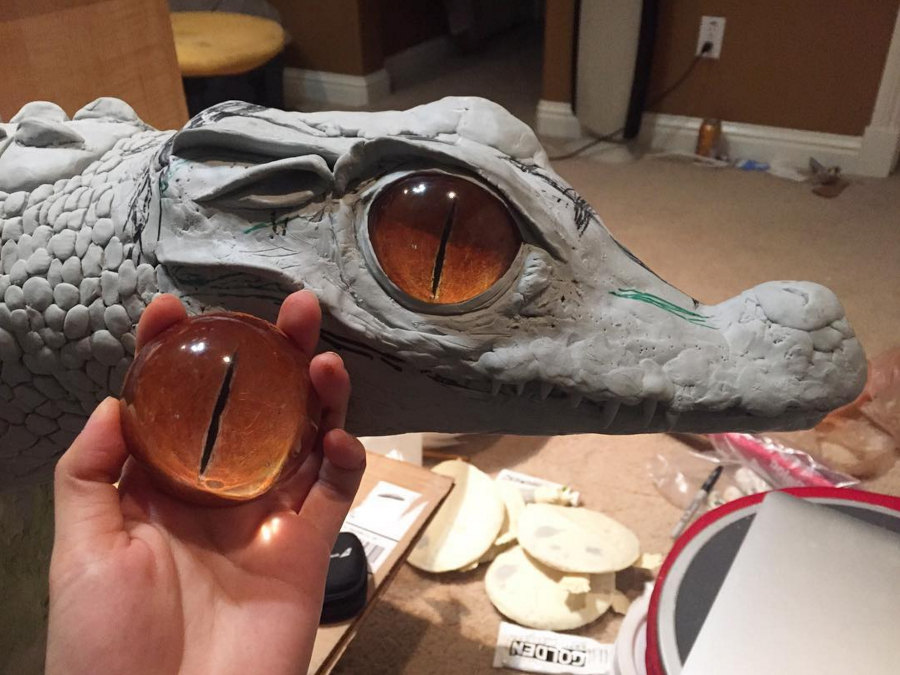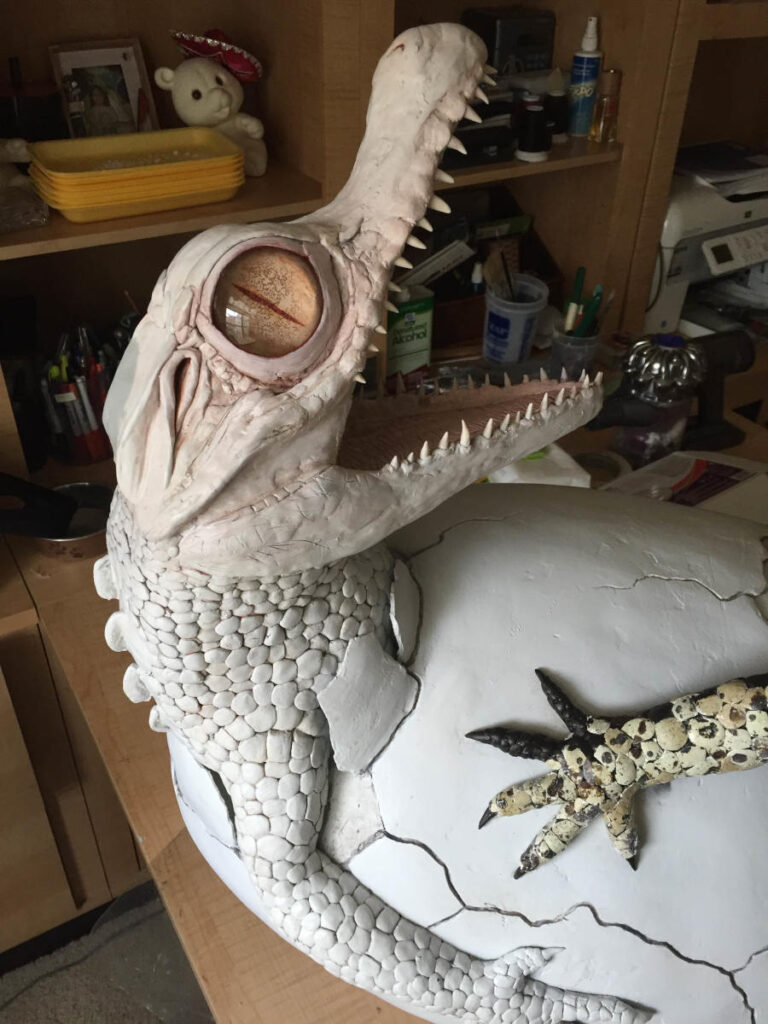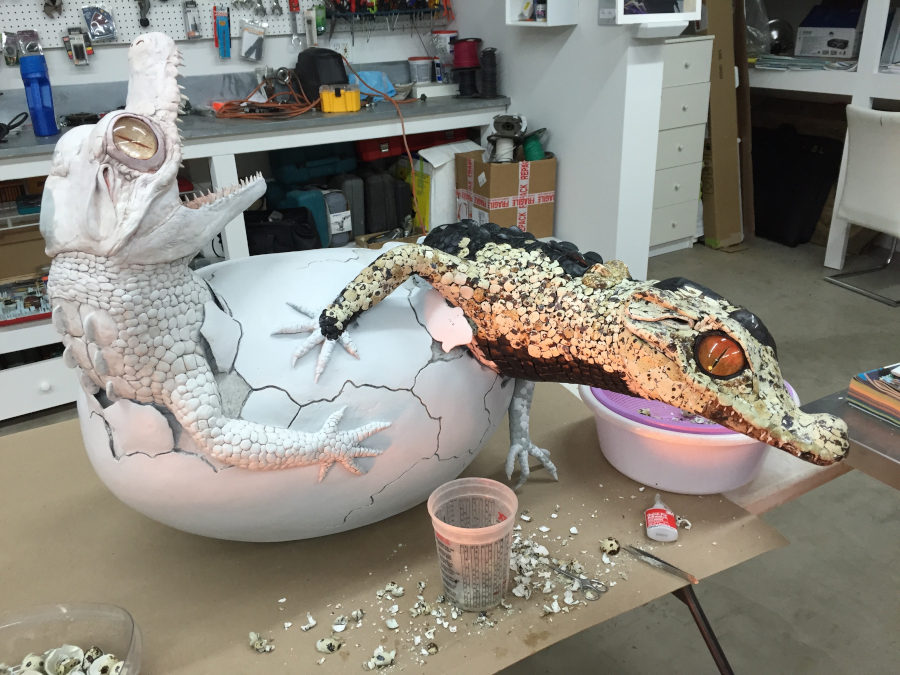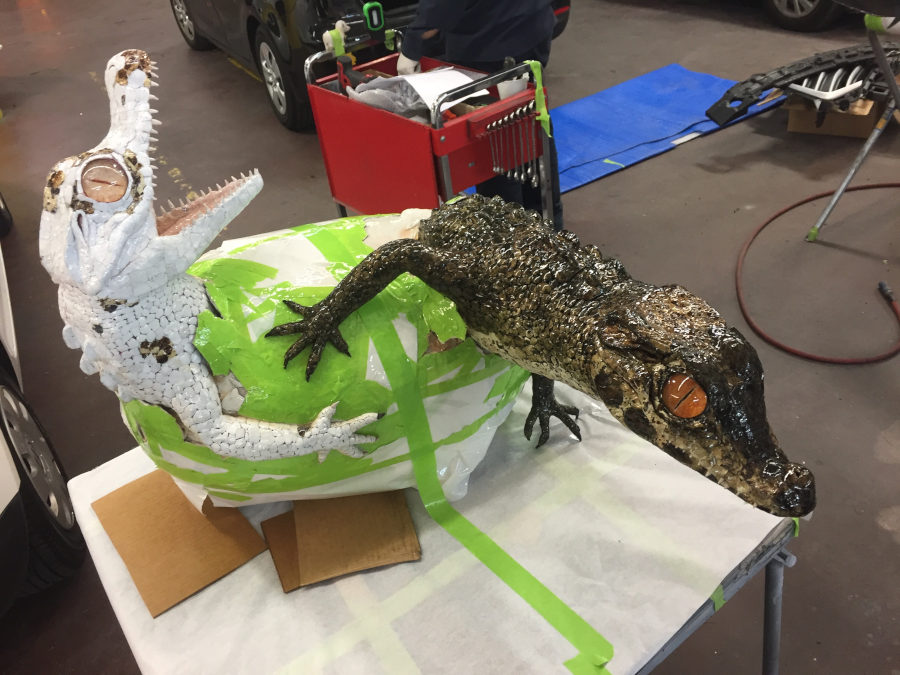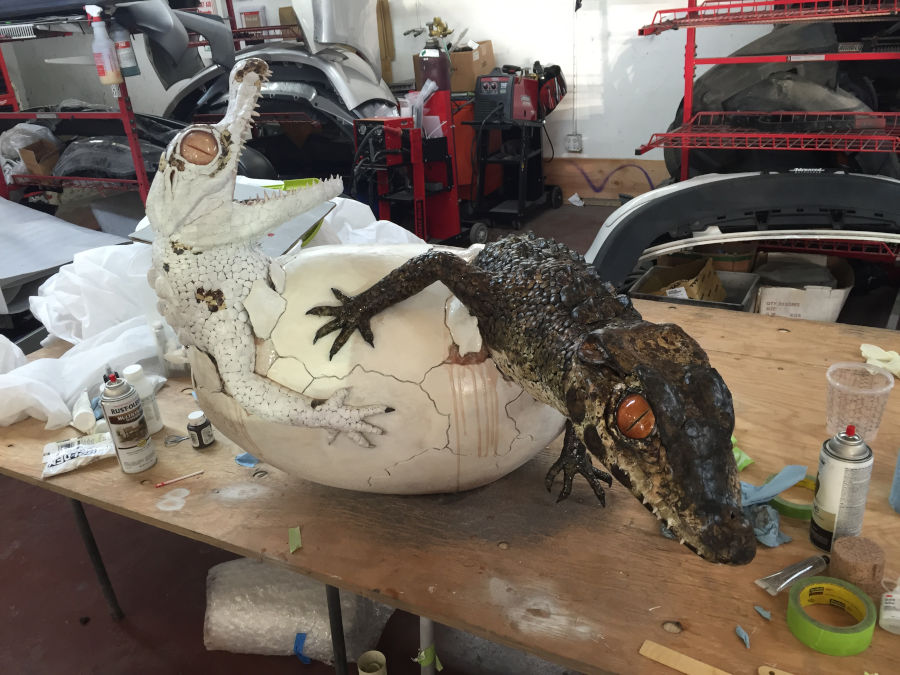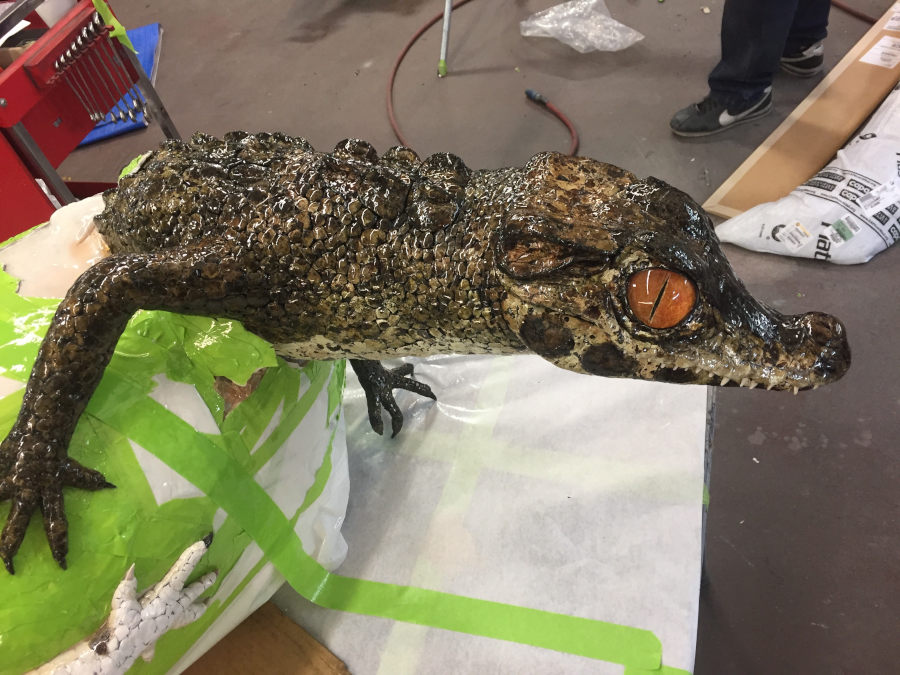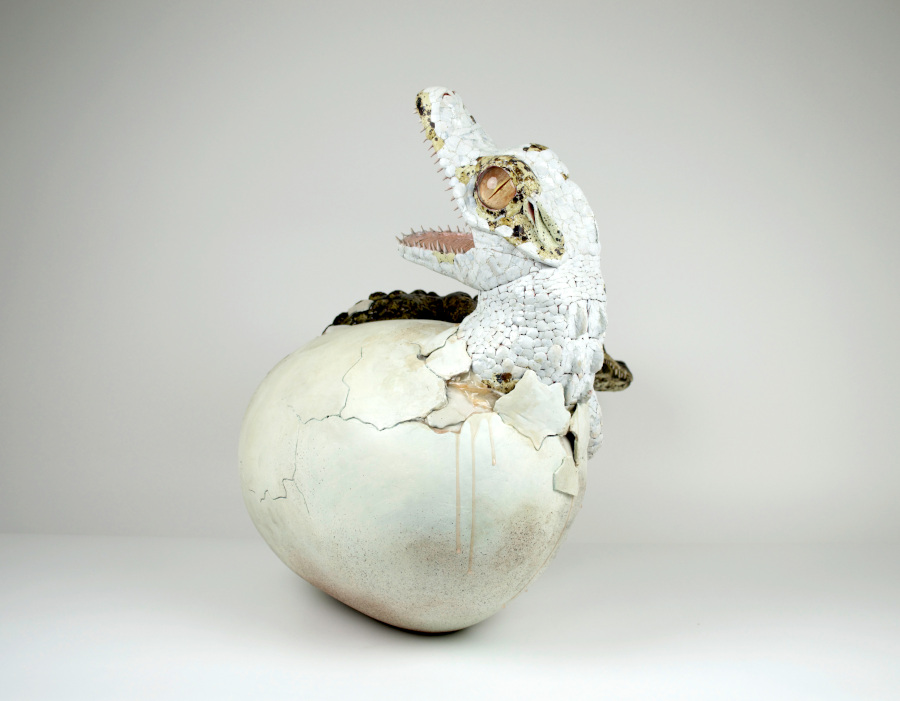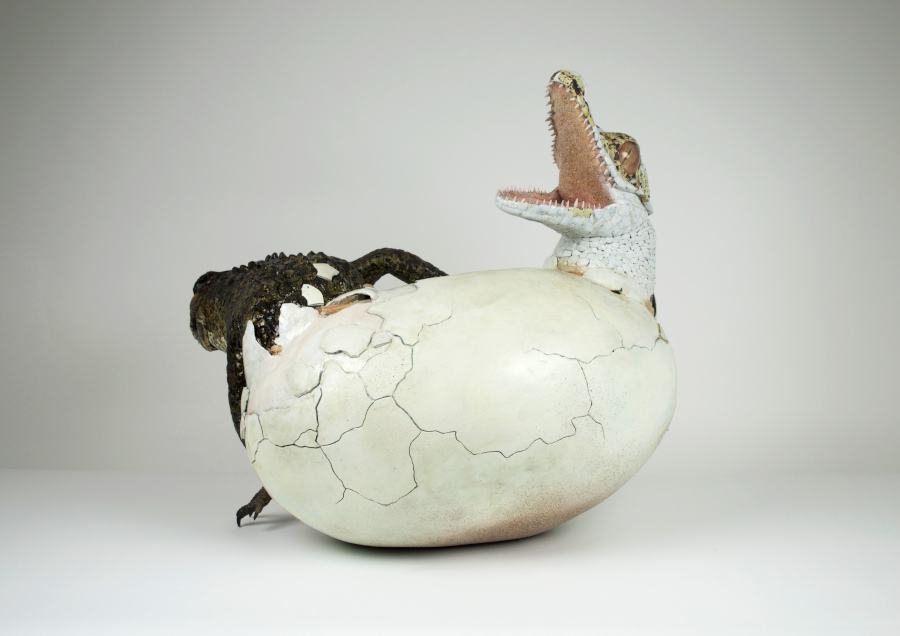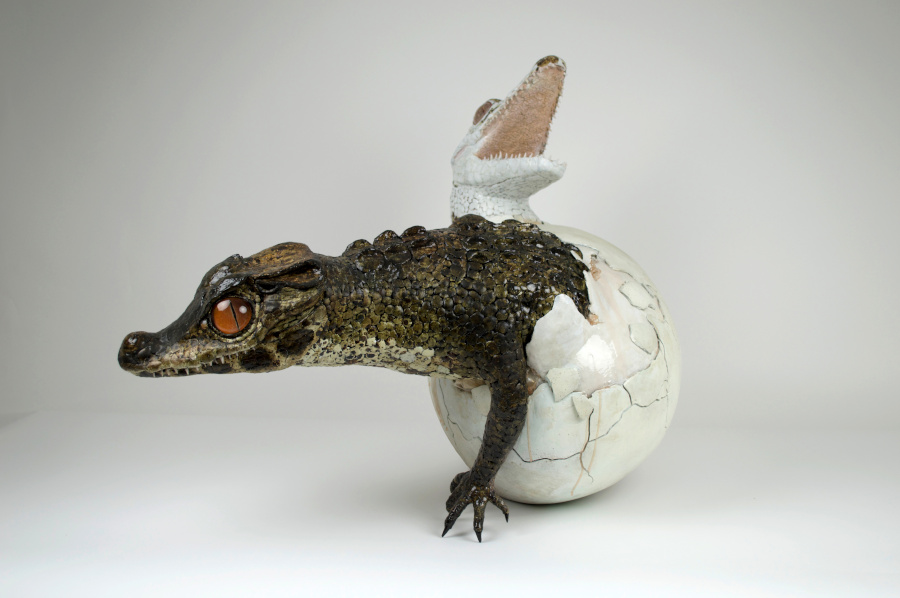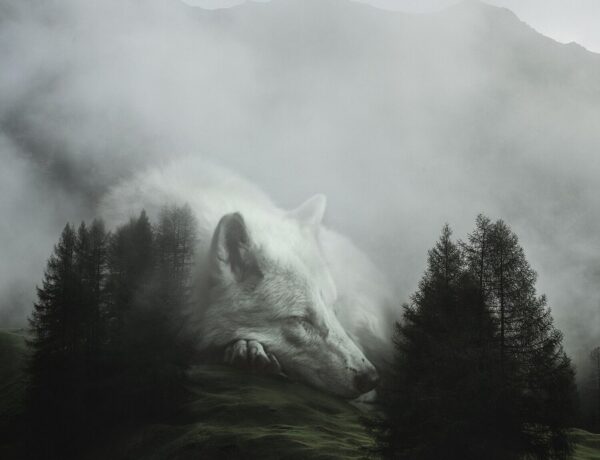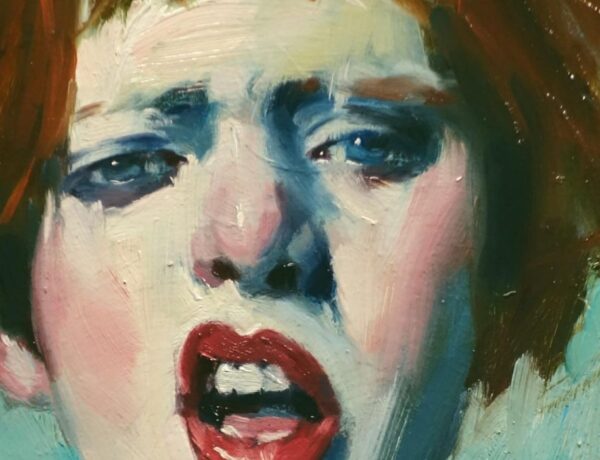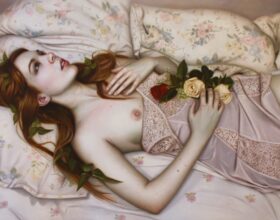I’ve been fascinated with the processes which Sarah Lee (2021 Beautiful Bizarre Art Prize YASHA YOUNG PROJECTS SCULPTURE AWARD FINALIST) has evolved through trial and error to create her magnificent sculptures. Sarah is a self-taught sculptor, and her journey into three-dimensional art has been an unusual adventure. Moreover, it’s her ability to create such life-like creatures, which has captured the hearts and minds of audiences around the world.
The techniques she has developed recycle materials, which is for me a respectable choice as an artist. Furthermore, this combines with her overarching awareness of the mark humanity has made on the world – and on the other living creatures who struggle to exist alongside us. Her sculptures often hold thoughtful narratives about our relationship with nature. Subtly, we are encouraged to think about the vulnerability of the creatures that she recreates alongside their external strengths. Add in her ability to ensure visually stunning, often surreal elements, and you begin to see why Sarah Lee is an important sculptor in the modern age.
Vulnerability and durability
I wanted to juxtapose the fragility and vulnerability of eggshells with the hard metal armature fiberglass sculptures. I wanted to play with the themes of yin and yang, the breakable with the unbreakable, weakness and strength, vulnerability and durability, and find the balance in between.
Since I have a love for animals I started to seek and research animals that portrayed strength, yet were vulnerable in some way. I started off with reptiles because the scales of reptiles’ purpose were the same as the eggshells – protection. Then, I would replicate the scales of the chosen reptile with the eggshells to show full control of the material.
Sarah Lee
If, like me, you’ve been curious to learn more about how Sarah creates – you’re in for a treat! Below, Sarah she takes us through her process of creating her sculpture, Yin and Yang, which made the Finalist category of the Beautiful Bizarre Art Prize 2019.
The Yin and Yang project
Step 1
Rather than starting off with a sketch, I dove right in to make a small model for Yin and Yang so I can get a feel for form and proportion. Since the clay is polymer I can change it however I want without breaking anything – it’s essentially sketching with soft, flexible clay. After a feel for the outcome, I move on to making the eyes.
Step 2
For the project Yin and Yang, I chose to sculpt two baby dwarf caimans. I knew the eyes of these reptilians would be the focal point of the onlookers’ gaze.
Because our human brains naturally recognize faces before anything else, I believe the eyes are the most important part of the sculpture. When creating a new piece, I always start off with sculpting the eyes and I typically spend most of my time sculpting and detailing the head.
Step 3
While the eyes are still in the drying stage, I start welding the armatures and thinking about the inside structure of the artwork. I have to make sure it’s sturdy and won’t collapse from the pressure of heavy fiberglass, bondo, and clay.
Step 4
Sanding the egg was the most grueling part of the process. I hated it! I still hate sanding. If you look at an egg, the eggshell’s surface is really smooth. Smoothing out the fiberglass and bondo is not an easy task. Nobody likes sanding. It’s the most boring part of the process, and sanding fiberglass leaves you itchy all day long – even with a full body cover and respirator. Fiberglass loves to stick to human skin and sweat. I have tried to find better methods for this arduous process, but my search continues.
Step 5
The fun part!
After welding the heads to the bodies, I move onto detailing. I find the most enjoyable part of the process is adding the details. Usually, the start of a project will look like pieces of trash I picked up from the dumpster, so transforming those pieces into something beautiful with my own hands is incredibly rewarding. When nothing starts looking like something, it’s very satisfying.
Step 6
Problems with gravity.
Gravity isn’t your friend. This sculpture is front-heavy and I had to spend some time figuring out how to keep it from toppling forward. I’m no Isaac Newton, so this type of engineering was probably the most challenging ordeal. At this point, the small model I made was useless. The model was able to stand on its own because it was small and light, but blowing that up 10 times its size was not going to work. I had to improvise and change the position so it would stay upright. It was quite a process.
Step 7
Buying more than a thousand quail eggs.
I got very used to people staring at me whenever I bought quail eggs – I guess not many people buy them in bulk. Sometimes people would ask me what I plan to do with them.
Usually when I tell them I’m using them for art they will give me a judgemental look, which is great because it cuts the conversation short and my introverted self is then saved from conversation exhaustion.
I use most of the eggs in my homemade dog food, and carefully wash the shells one by one so my projects don’t smell like rotten eggs. This process takes about a day, then I wait for the next day to treat the eggshells before gluing them to the surface of my project.
Step 8
Gluing the eggshells to the scales of the reptile one by one creates an extra layer of cracked texture and makes the sculpture appear more realistic. Sometimes I’ll leave the eggshells as is, or add a thin layer of paint to further the likeness of the animal.
After that, I seal the project so that the shells become durable and last longer than they otherwise would.
These are organic materials, so I assume they will crumble or change over time. The base and the skeleton will remain, but the skin will fade. I like the concept of nothing lasting forever, and I’m satisfied knowing I was able to give the eggshells a second life.
Step 9 – The finishing touches
I must admit, my favourite part is not the start of an artwork, but the end of it. There’s something so satisfying in adding the last finishing touches of a new creation.
It’s that feeling of reaching the end and feeling accomplished, I guess.
I hope you’ve enjoyed this little peek into my world!


